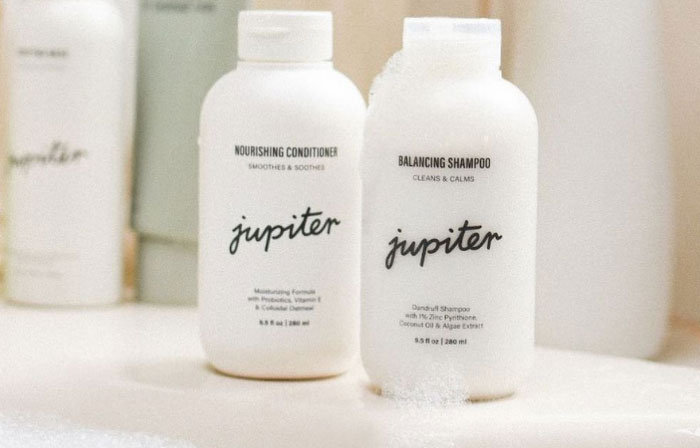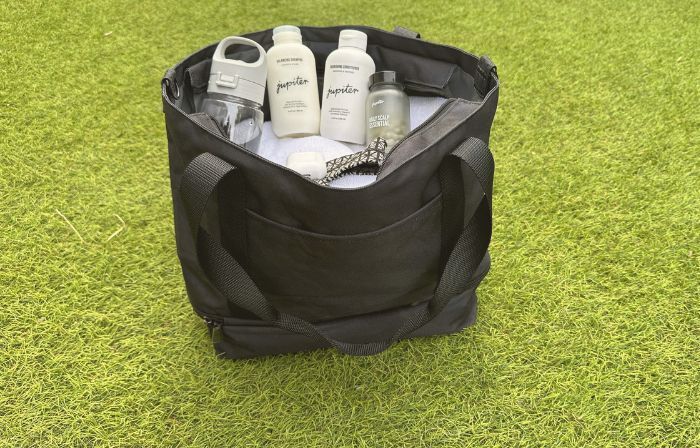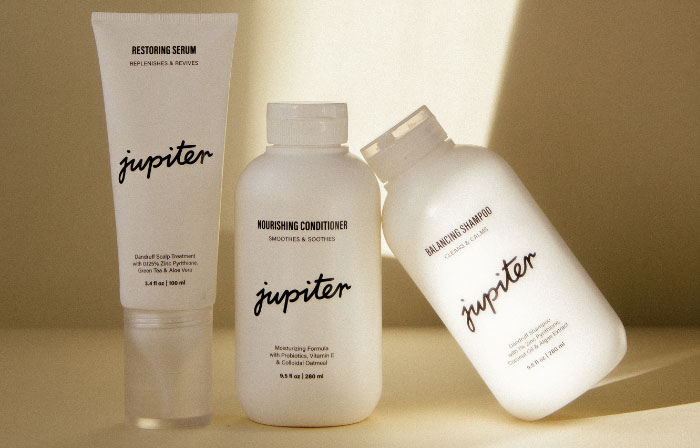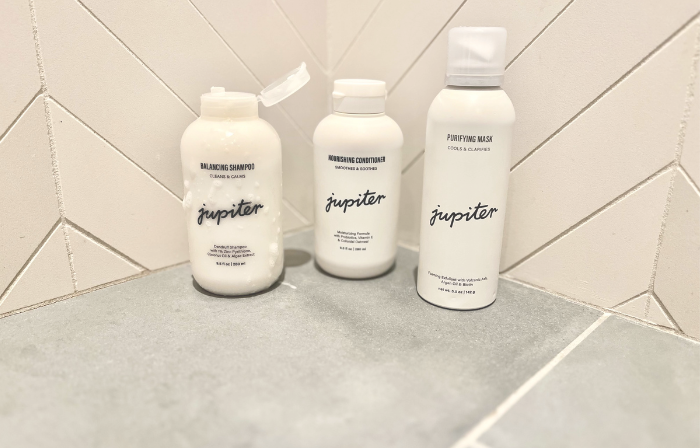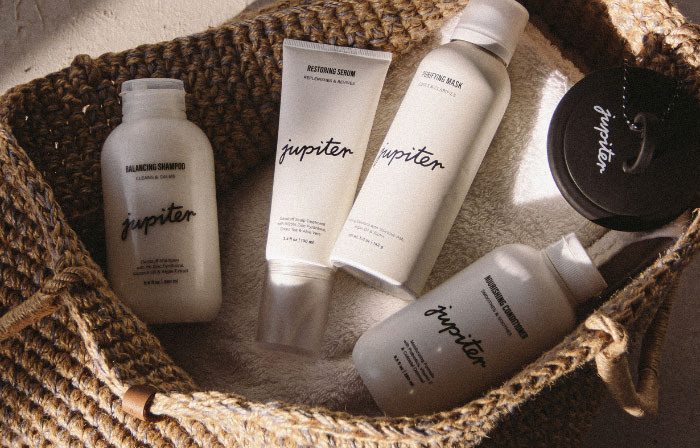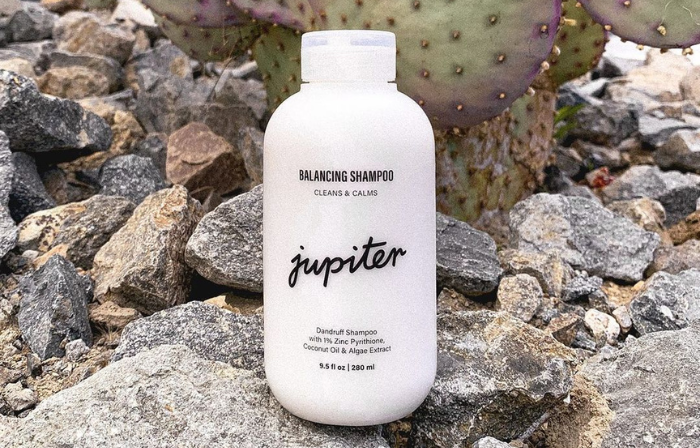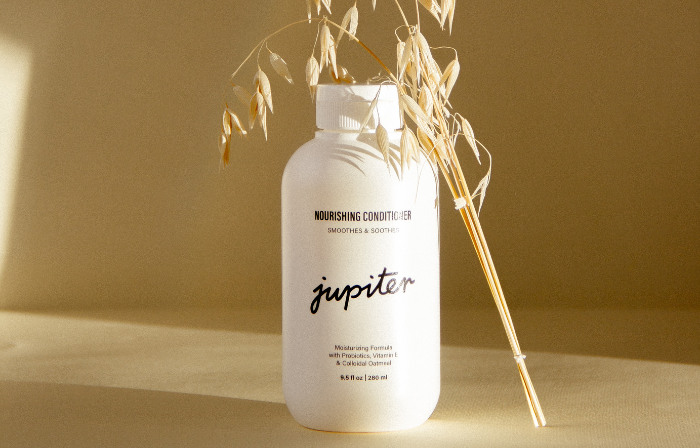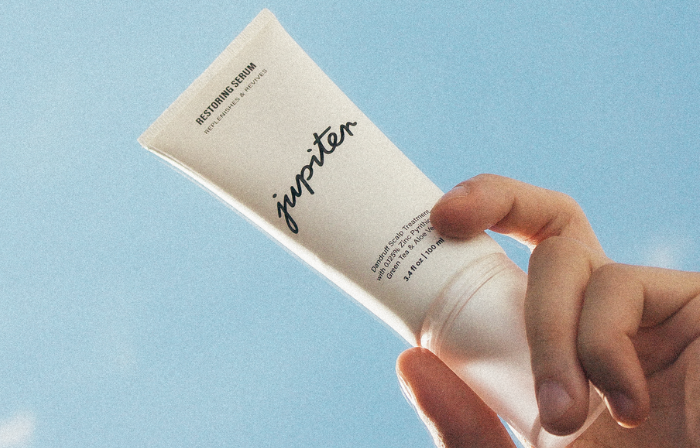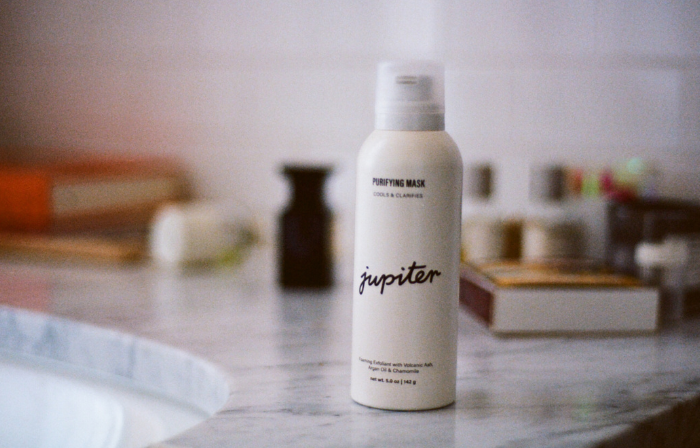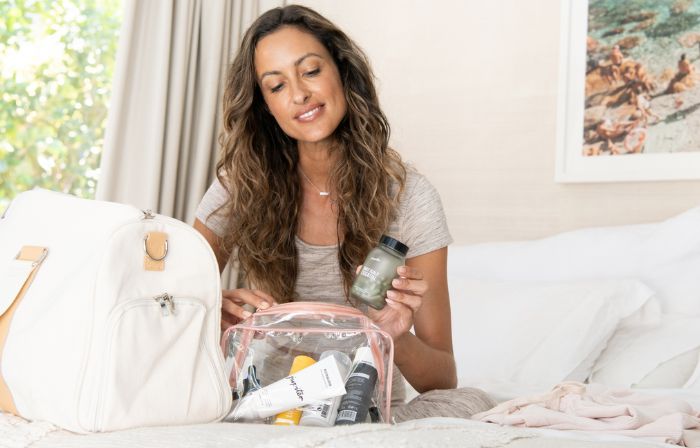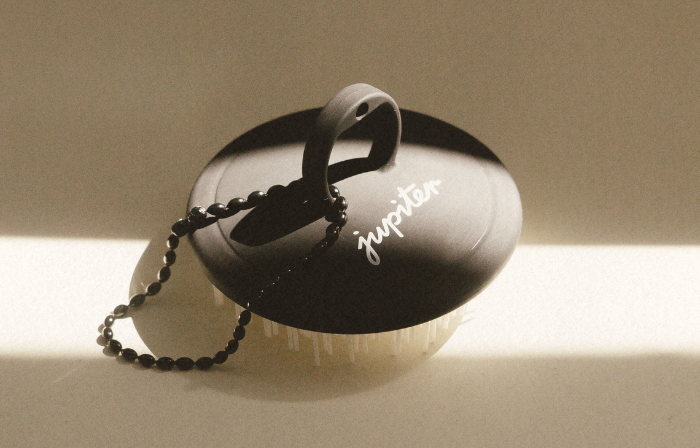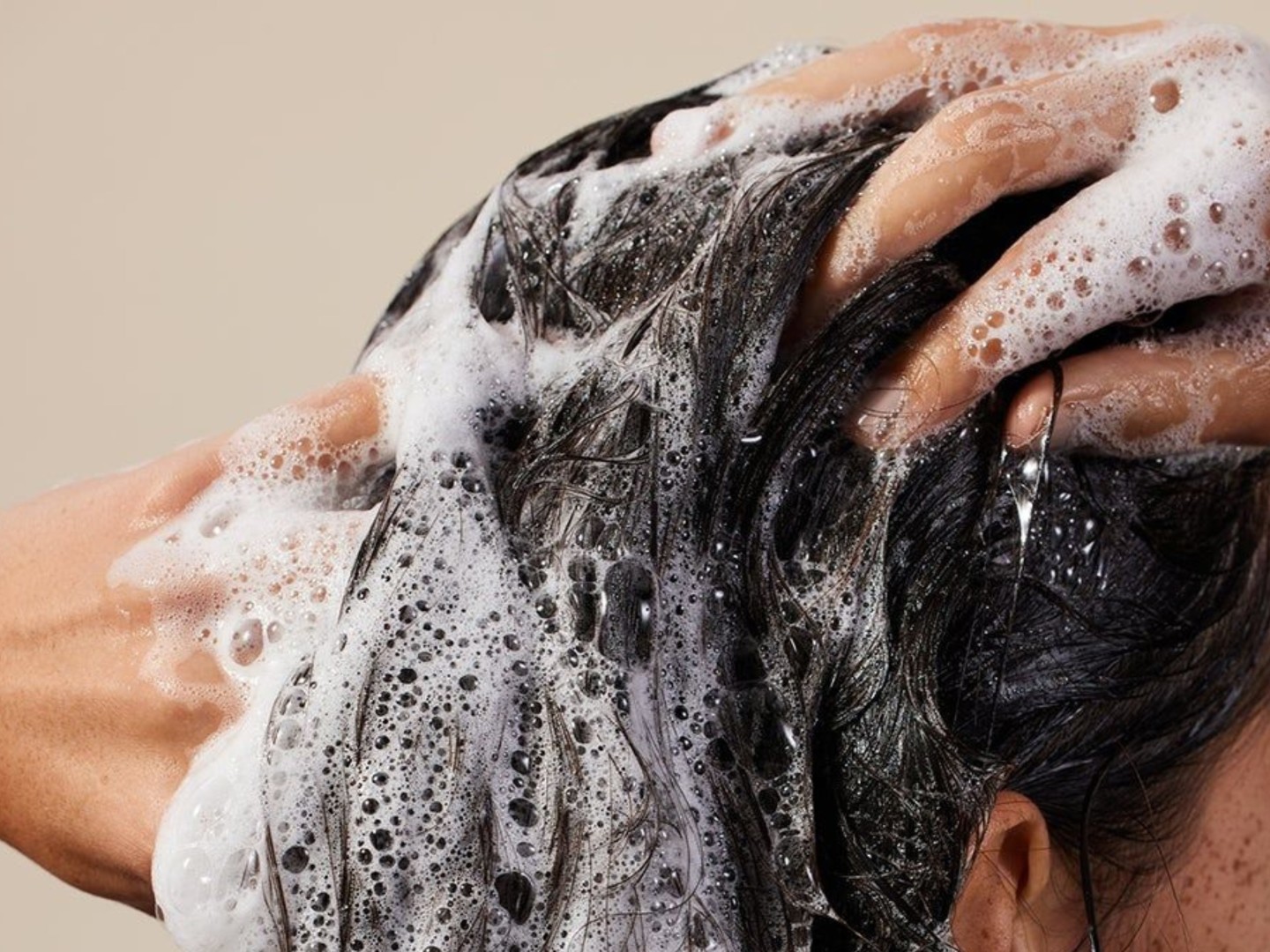Finding sulfate-free shampoos can be surprisingly tricky. Some companies disguise sulfates with a little clever chemistry, while others simply replace them with chemicals that are just as bad (or even worse) for your scalp and hair.
Luckily, you don’t have to skip shampoo to nix unsafe additives like sulfates. You just have to learn what to look for when you’re sizing up the ingredients. We’ll teach you how to spot and avoid sulfates - but first, a little backstory about what these chemicals are and why you don’t want them in your hair care products.
What Are Sulfates?
In order for any soap or shampoo to work, it needs a surfactant to lift the dirt and grime from your skin and hair so that the water can rinse it off. Surfactants are simply chemicals that reduce the surface tension of oil, allowing water to cleanse it more effectively. For decades, shampoo manufacturers turned to sulfate-based surfactants to clean hair and create that sudsy lather. The “big three” - which you’ve probably heard of - include sodium lauryl sulfate, sodium laureth sulfate, and ammonium laureth sulfate.
Why did the beauty industry latch on to these surfactants? The answer has everything to do with price and customer perception. Sulfates are cheap and effective cleansers for cleaning buildup of dirt, grease, and grime from your hair and scalp. And because sulfates are foam-creating ionic surfactants, sulfate shampoos and conditioners will whip up a lot of lather when you use it on wet hair.
But the amount of lather you see doesn’t actually tell you how well the shampoo or cleansing agents are working. Lathering is simply showing how much your hair care product interacts with water, not dirt. Today, as more and more consumers realize that cheap surfactants are bad news, sulfate-free shampoo is coming into high demand.
Why Choose a Sulfate-Free Shampoo?
Sulfates are effective. In fact, the problem is that they are often too effective at stripping away your natural oils. Beauty products and shampoos that contain sulfates can disrupt the natural balance of oils on your scalp. For some people, this can lead to drier scalps, hair breakage, and damaged hair. For others with different hair needs, it may cause the oil glands in the scalp to create too much sebum. This will lead to oily hair that only gets worse as you wash more frequently.
Different hair types respond to sulfates in different ways. Some people may use these products without having any noticeable issues. People with fine hair, dry hair, sensitive skin, or lots of curls may deal with scalp irritation, damaged hair, and frizz. Color-treated hair is also more prone to damage and dryness, and sulfates may even ruin your dye job.
Unfortunately for people who experience dandruff, sulfate shampoos can make the problem much worse. Dandruff, which is flaking caused by scalp irritation, has many underlying causes, including eczema and seborrheic dermatitis. Sulfates can also cause flare-ups of these conditions, exacerbating dandruff even further.
The good news is that you don’t need sulfates to get clean, beautiful hair. A number of gentle ingredients will get the job done just as well, with none of the over-drying and oil-stripping effects of synthetic sulfates. These surfactants are typically plant-derived, and safe to use on all hair types - though you can find plenty that are specifically formulated for people with curly hair or color-treated hair. More on that shortly.
Shampoos that contain sulfates can disrupt the natural balance of oils on your scalp. For some people, this can lead to dry scalp and damaged hair.
Finding a Sulfate-Free Shampoo
How hard can it be to find a sulfate-free shampoo? You just need to see “sulfate-free” on the label… right?
Unfortunately, it’s not that easy. Many shampoo companies create products that are technically sulfate-free, but still contain harsh, synthetic surfactants. For example, some manufacturers use Sodium Lauryl Sulfonate - a slightly modified version of Sodium Lauryl Sulfate. These chemicals aren’t sulfates, but they’re hardly better than the normal, harsh surfactants you’re trying to avoid.
That means you have to check the ingredient label. Look for plant-derived surfactants, like saponin, glucosides, sulfosuccinates, or glutamates. These natural surfactants can remove dirt and grease from your hair just as effectively, and they are much gentler on your skin.
Even if you wear your natural hair color and don’t suffer from dry hair or frizz when you lather up with sulfate-based shampoos, there are still environmental reasons to choose a sulfate-free shampoo. Many sulfates added to shampoos are derived from petroleum. When these chemicals are introduced to the water supply, they can have harmful effects on the local ecosystem.
What Else is Hiding on The Label?
Just because a shampoo is technically “sulfate-free” doesn’t make it safe. Many sulfate-free shampoos opt for other harsh surfactants to replace sulfates in their hair care products - and you should do your best to avoid these sulfate replacements, as well. That includes cocamide DEA or MEA, propylene glycol, and hydroxysultaine, just to name a few.
These mainstream shampoos may also use unsafe preservatives like BHT or BHA. These preservatives can absorb through your skin, where they accumulate in your body, and have been linked to cancer risk and immune system issues. So why risk it? Responsible shampoo brands use safe, naturally-derived preservatives such as citric acid, potassium sorbate, and essential oils.
You should also watch for synthetic fragrances, which often contain parabens to stabilize the scent and make it last longer in your hair. For example, some shampoo manufacturers use synthetic lavender scents that don’t deliver any of the benefits of using lavender in your hair. They also penetrate your skin and absorb into your body. Many of these chemicals have been linked to kidney problems, neurotoxicity, and other health issues.
Giving Sulfates The Boot
Dandruff is an issue that affects nearly 75% of the population at some point in their life, and many people struggle with it daily. If you’re dealing with flakes and itching, it’s time to ditch the sulfate shampoo. After all, shampoos with sulfates can cause irritation on your scalp that can lead to flaking - even for people who don’t normally have to worry about it.
The right dandruff care routine can curb those flakes for good, and the right scalp care products can leave your scalp and hair feeling and looking its best. At Jupiter, we offer the best sulfate-free shampoo. All of our dandruff and scalp care products are formulated for hydration from luxe, clean ingredients that are nourishing and moisturizing to your scalp.
So check those ingredients labels. Avoid sulfates and their unsavory replacements. And while you’re at it, read the rest of the ingredients to watch for unsafe preservatives and synthetic fragrances. You may think you're going to hydrate by getting aloe, amino acids, shea butter, or coconut oil, but if sulfates are also included in the formulation, the product can actually stand in the way of healthy skin, hair, and scalp. You’ll sleep well knowing you’re safe from sulfates and other troubling ingredients.
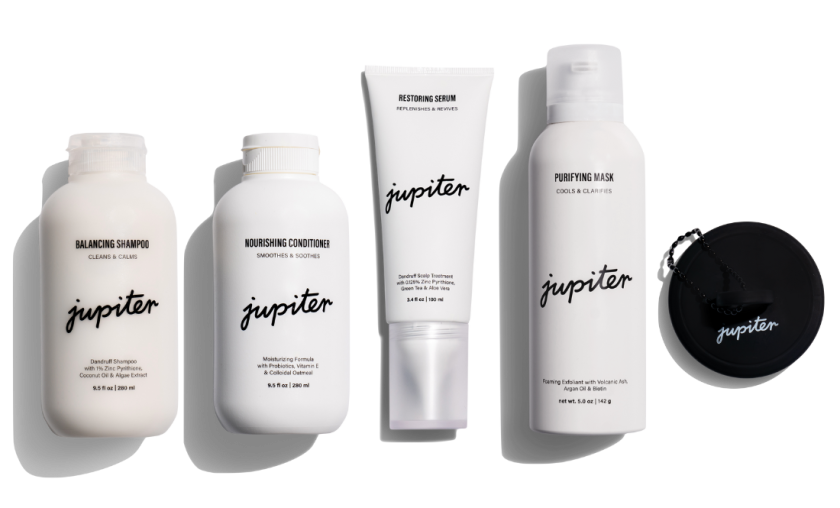
The shower powerhouse. The dream team. The dynamic duo. Call it what you will. If you have light-to-moderate flaking, redness or irritation, this tends to your dandruff while the moisturizing conditioner leaves your hair looking shiny and healthy.
